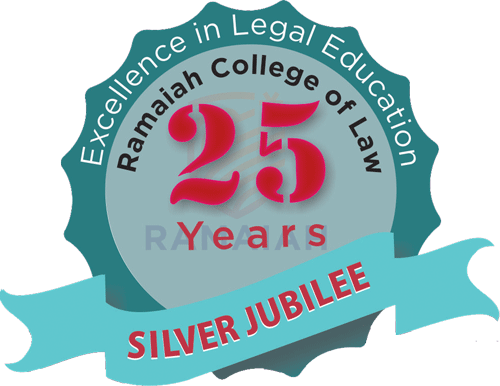JUDICIAL EAGLE GUARDING THE CONSTITUTIONAL RIGHT TO FREE LEGAL AID

Alfonsa Saji
Legal Aid in Indian Constitution
The consideration of Right to free Legal Aid as a fundamental right is nothing but an outcome of judicial interpretation of the most cherished Right under Article 21 of the Constitution of India. Legal aid is a welfare establishment by the state to its public who cannot afford the expense of legal aid. The Constitution has played an imperative role in safeguarding the socio-economic and cultural rights of the public at large. The impression of legal aid is enumerated under Article 39A of the Constitution. Legal aid is not a philanthropic strategy, but rather is a constitutional prerequisite of the state and the right of its citizens. It endeavours to shield the constitutional pledge in its letter and spirit, thereby, allowing equal justice opened to the vulnerable and weaker sections of the general public. In this paper, the author pounders upon the significance of judiciary in providing access to equality under the watchful eye of the law, the right to representation by counsel and the right to fair trial.
Contributions of Judiciary Towards Free Legal Aid
The Indian Constitution provides for an independent and impartial judiciary and the courts are given the power to safeguard the rights of people irrespective of their financial status. Since the aim of the constitution is to provide justice to all and the directive principles are fundamental in the governance of the country2, the constitution dictates that judiciary has the duty to protect rights of the poor as also society as a whole. The judiciary through its judicial interventions has compelled the legislature to come up with the suitable legislations to bring justice to the doorsteps of the weakest sections of the society.
The Supreme Court of India made a vehement pronouncement with regard to the rights of the poor and destitute people in judgment of Hussainara Khatoon v. State of Bihar.3 The Apex Court emphasized that “free legal services to the poor and needy is an essential element of any ‘reasonable, fair and just’ procedure. The State cannot avoid its constitutional mandate to ensure speedy trial and whatever is necessary for this purpose has to be done by the State.”
Later in the case of Khatri v. State of Bihar,4 Justice Bhagwati, highlighted that the State cannot avoid its constitutional obligation to provide free legal services to the poor by pleading financial or administrative inability. Article 39A casts a constitutional obligation upon State to provide free legal aid not only at the stage of trail but also at the stage when the accused is initially produced before the Magistrate and when he is remanded from time to time.
In Suk Das v. Union Territory of Arunachal Pradesh,5 Justice Bhagwati reiterated that it is settled law that free legal assistance at State cost is a fundamental right of a person accused of an offence which may involve jeopardy to his life or personal liberty and this fundamental right is implicit in the requirement of reasonable, fair and just procedure prescribed by Article 21. The right to free legal service is a constitutional right of every accused person who is unable to engage a lawyer and secure legal service on account of reason, such as poverty, indigence, or incommunicado situation and the State is under mandate to provide lawyer to an accused person if the circumstances of the case and the needs of the justice so require.
Justice Krishna Iyer, who is a supporter of social justice in India, in Madhav H. Hoskot v. State of Maharashtra6 had rightly said that “if a prisoner sentenced to imprisonment is virtually unable to exercise his constitutional and statutory right of appeal inclusive of special leave to the Supreme Court for want of legal assistance, there is implicit in the Court under Article 142 read with Articles 21 and 39A of the Constitution, the power to assign counsel for such imprisoned individual for doing complete justice. It is a statutorily recognized public duty of each great branch of government to obey the rule of law and uphold the trust with the constitution by making rules to effectuate legislation meant to help the poor.”
Conclusion
Our judicial system is founded upon the most important canon of natural justice, that is no one can be punished unheard. This vital requirement of natural justice can never be satisfied unless the person seeking justice has represented his case properly. In this regard, our criminal jurisprudence follows very interesting anecdote, i.e., let ten guilty go free than one innocent person be convicted.
Our Apex Court has in time and again made series of attempts to implement this philosophy which is already prevailing in our legal system from the beginning. Although a lot has done in this regard to satisfy the basic need of a just society, yet, a lot of things are required to be done to make the notion of free legal aid a reality, rather than a paper promise, to the greater portion of the population. The most important requirement in this respect is creation of legal awareness amongst the people from all walks of life. The legal jargons are required to be made legible to the greater masses. Most importantly public-spirited lawyer is the need of the hour to carry forward the very noble mission of providing justice to people belonging to all segments of society.
1 1st year LL.M, Ramaiah College of Law, Bangalore
2 Bangalore v. State of Mysore, AIR 1970 SC 2042
3 (1980) 1 SCC 98
4 (1981)1 SCC 627
5 AIR 1986 SC 991
6 AIR 1978 SCC 1548

